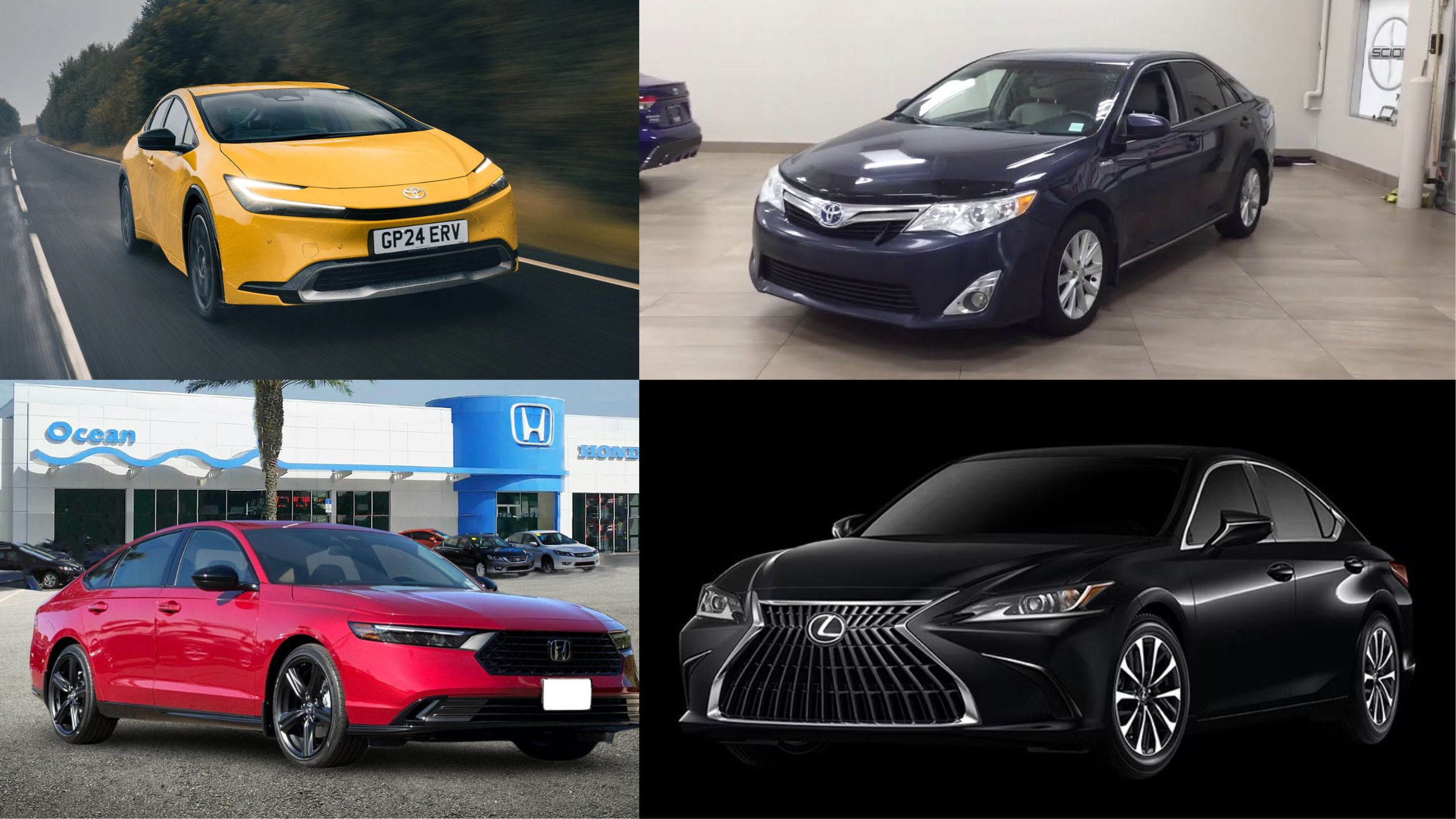Commuting long distances demands a vehicle that excels in reliability, fuel efficiency, comfort, and durability. For those traveling 100+ miles daily, selecting the right car isn’t just about convenience it’s an investment in your quality of life and financial well-being.
Such extensive commutes put vehicles through rigorous testing, accumulating mileage quickly and requiring dependable performance day after day.
The ideal commuter car for these marathon drives balances several critical factors: exceptional fuel economy to keep operating costs manageable, comfortable interiors that prevent fatigue during extended time behind the wheel, proven reliability to minimize unexpected breakdowns, and sufficient durability to withstand the rapid accumulation of miles.
Additionally, modern safety features and driver assistance technologies become increasingly valuable as time on the road increases. This guide explores ten standout vehicles specifically suited for extreme commuters.
From fuel-sipping hybrids to comfortable sedans and practical SUVs, these selections represent the best options for those who spend a significant portion of their day traveling between destinations.
Each recommendation considers not just the initial purchase price, but the total cost of ownership for high-mileage drivers, including maintenance requirements, fuel costs, and predicted longevity.
1. Toyota Prius
The Toyota Prius remains the gold standard for high-mileage commuters, and for good reason. With its latest generation offering up to 57 mpg combined, few vehicles can match its efficiency for long-distance driving.
What makes the Prius particularly well-suited for extreme commuters is its legendary reliability it’s not uncommon to see Prius models surpass 300,000 miles with minimal major repairs, a testament to Toyota’s engineering prowess and the inherent durability of its hybrid powertrain.
The current model combines impressive fuel economy with significantly improved driving dynamics compared to previous generations. The powertrain delivers a smoother, more responsive experience that reduces driver fatigue during extended periods behind the wheel.
Interior comfort has been enhanced with better sound insulation, supportive seats designed for long-term occupancy, and a cabin layout that prioritizes driver ergonomics.
Maintenance costs remain exceptionally low, with many owners reporting minimal requirements beyond routine service intervals. The regenerative braking system reduces wear on conventional brakes, while the electric motor reduces strain on the gasoline engine during acceleration—both contributing to longevity.
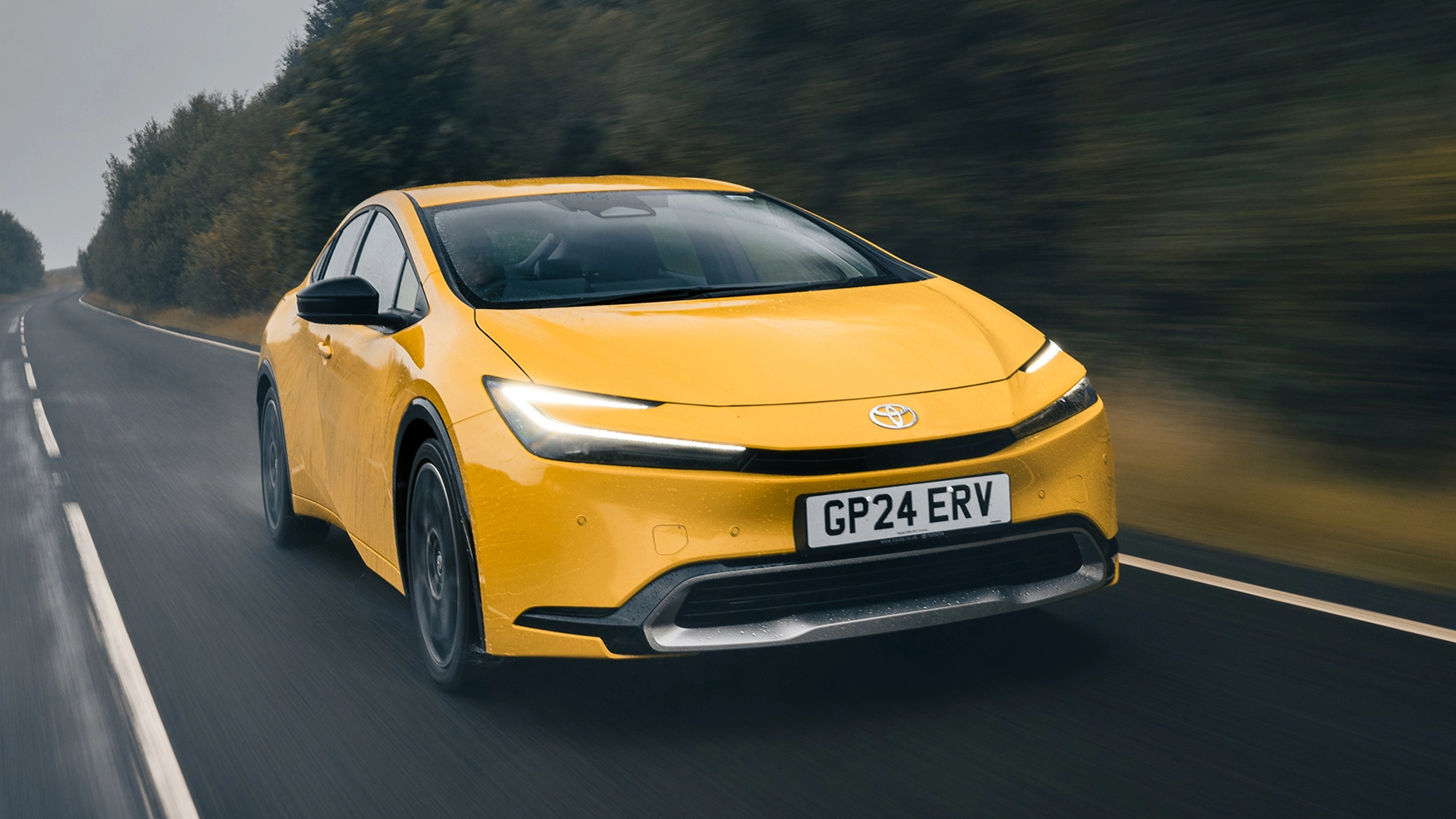
The battery warranty typically extends to 10 years or 150,000 miles (depending on location), providing peace of mind for high-mileage drivers. Tech features now include adaptive cruise control, lane-keeping assistance, and automatic emergency braking as standard equipment all valuable assets for those spending extensive time on highways.
The infotainment system includes wireless smartphone integration and voice command capabilities that help drivers stay connected without distraction.
While not the most exciting vehicle aesthetically, the Prius compensates with practicality. Its hatchback design offers flexible cargo space, accommodating everything from luggage to work equipment.
For commuters who prioritize efficiency, reliability, and low operating costs above all else, the Prius remains the benchmark against which all other commuter vehicles are measured.
2. Honda Accord Hybrid
The Honda Accord Hybrid perfectly balances efficiency and comfort for long-distance commuters. Achieving up to 48 mpg combined while delivering midsize sedan spaciousness, addresses the common complaint that efficient vehicles must sacrifice comfort.
Honda’s hybrid system seamlessly transitions between electric and gasoline power, providing a refined driving experience that’s particularly valuable during multi-hour commutes. What distinguishes the Accord Hybrid for extreme commuters is its exceptional seat comfort.
Honda has designed these seats with long-term comfort in mind, offering multiple adjustment points, supportive cushioning, and ergonomic positioning that prevents the back and leg fatigue commonly experienced in lesser vehicles.
The cabin is notably quieter than many competitors, with acoustic glass and sound-deadening materials minimizing road and wind noise a critical factor for those spending 2+ hours daily in their vehicle.
Honda’s reputation for reliability extends to the Accord Hybrid, with the powertrain demonstrating excellent durability in high-mileage scenarios.
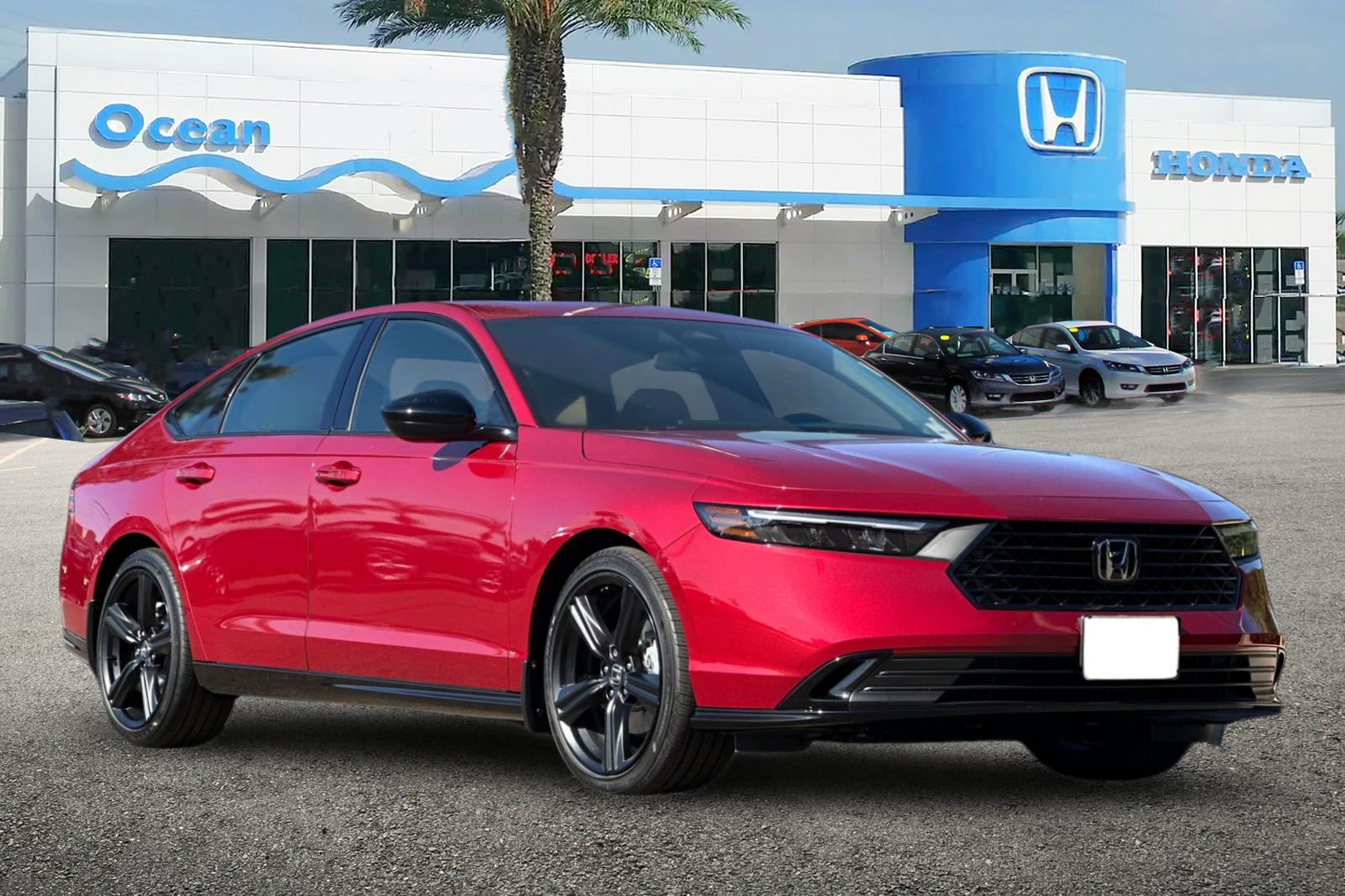
The regenerative braking system reduces wear on conventional brakes, while the electric motor assists the gasoline engine during high-load situations, potentially extending engine life. Maintenance intervals are reasonably spaced, and when service is required, parts and labor costs typically remain lower than luxury-brand alternatives.
The comprehensive and user-friendly technology package features a responsive touchscreen interface, wireless smartphone integration, and Honda’s Sensing suite of driver aids.
The adaptive cruise control system with low-speed follow capability is particularly valuable for commuters who frequently encounter variable traffic conditions, reducing the mental fatigue associated with constant speed adjustments.
Interior space exceeds expectations, with rear-seat legroom rivaling some luxury sedans and trunk capacity sufficient for most commuting needs. The cabin materials and build quality convey a premium feel that’s appreciated during extended time in the vehicle.
While the initial purchase price may be higher than some economy options, the combination of fuel savings, comfort, and predicted reliability makes the Accord Hybrid a financially sound choice for high-mileage drivers seeking a balance of efficiency and refinement.
3. Toyota Camry Hybrid
The Toyota Camry Hybrid stands as a paragon of reliability for extreme commuters, consistently ranking at the top of dependability surveys while delivering impressive fuel economy of up to 52 mpg combined.
This combination makes it an ideal choice for those who view their commuter vehicle as a long-term investment. Toyota’s hybrid system has been refined over multiple generations, resulting in seamless power delivery and exceptional durability that inspires confidence for those accumulating miles rapidly.
What sets the Camry Hybrid apart for high-mileage drivers is its balanced approach to the commuting experience. The ride quality strikes an ideal middle ground firm enough to maintain composure during highway cruising yet supple enough to absorb road imperfections that would otherwise contribute to fatigue during extended drives.
The seats provide excellent support for various body types, with power-adjustable lumbar support on most trims addressing a common pain point for long-distance drivers.
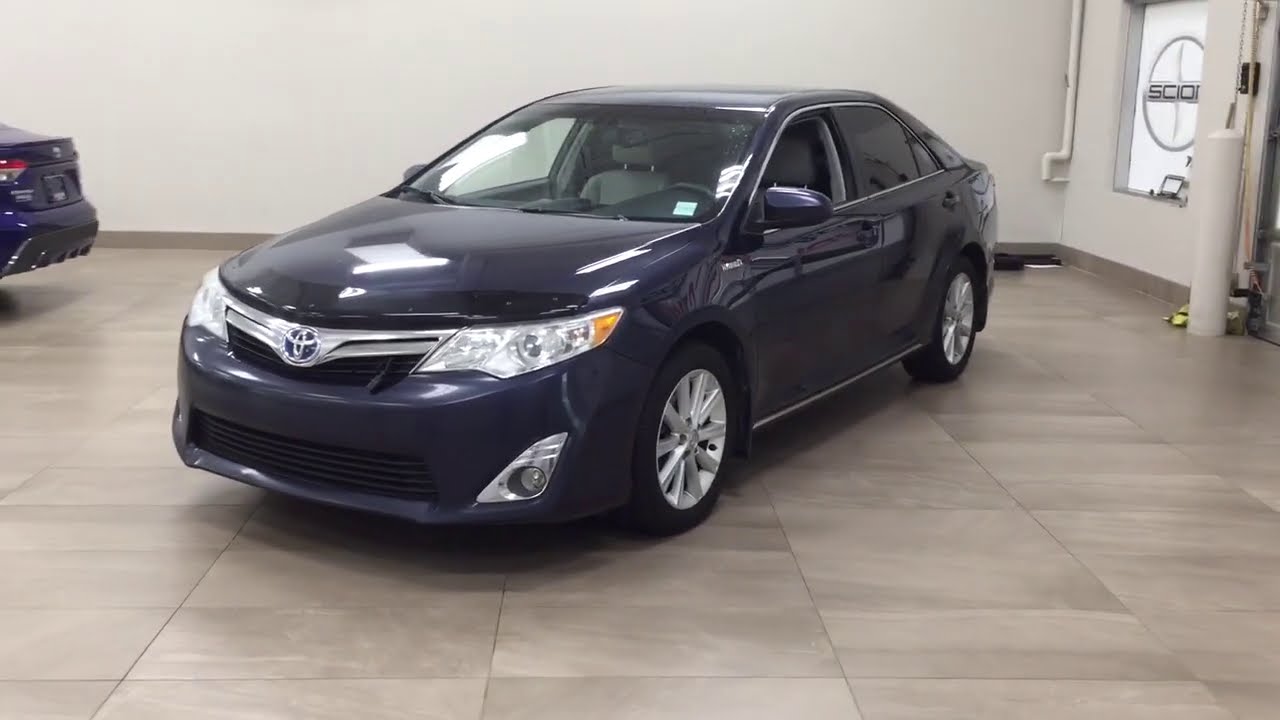
Maintenance requirements remain remarkably minimal, with many owners reporting nothing beyond scheduled service intervals for hundreds of thousands of miles.
The hybrid powertrain reduces wear on traditional friction components like brakes, while the gasoline engine operates in its efficiency sweet spot more frequently thanks to electric motor assistance.
Toyota’s hybrid battery warranty typically extends to 10 years or 150,000 miles, providing important coverage for high-mileage commuters. The cabin presents a thoughtful layout that remains ergonomically sound after hours behind the wheel.
Controls are intuitively positioned, visibility is excellent, and storage compartments are conveniently located for items needed during the commute. Noise isolation is particularly impressive at highway speeds, with minimal wind and road noise intrusion that might otherwise contribute to commuting fatigue.
Standard safety features include Toyota’s Safety Sense 2.5+ package with advanced driver assistance systems particularly valuable to those logging significant highway miles.
The adaptive cruise control functions smoothly in various traffic conditions while lane-keeping assistance reduces the mental workload during long highway stretches. For commuters who prioritize proven reliability, reasonable operating costs, and a comfortable, drama-free driving experience, the Camry Hybrid represents a sensible choice that will likely provide years of dependable service.
4. Hyundai Sonata Hybrid
The Hyundai Sonata Hybrid offers extreme commuters an impressive combination of efficiency, comfort, and value that makes it especially attractive for those accumulating miles rapidly.
With fuel economy reaching up to 52 mpg combined and distinctive styling that stands out from other commuter-focused vehicles, the Sonata Hybrid delivers practical economics without sacrificing visual appeal.
Hyundai’s hybrid system provides smooth operation with enough power reserve for confident highway merging and passing important considerations for those spending significant time on interstates.
What truly distinguishes the Sonata Hybrid for high-mileage drivers is Hyundai’s industry-leading warranty coverage. The 10-year/100,000-mile powertrain warranty and lifetime hybrid battery warranty (in some markets) provide exceptional peace of mind for those who quickly accumulate mileage.
While Toyota and Honda may have longer-established reliability reputations, Hyundai’s warranty commitment substantially mitigates the financial risk of potential repairs during the critical early years of ownership.
The interior presents a near-luxury experience at a mainstream price point. The seats offer excellent support for extended driving sessions, with well-designed cushioning that prevents pressure points during multi-hour commutes.
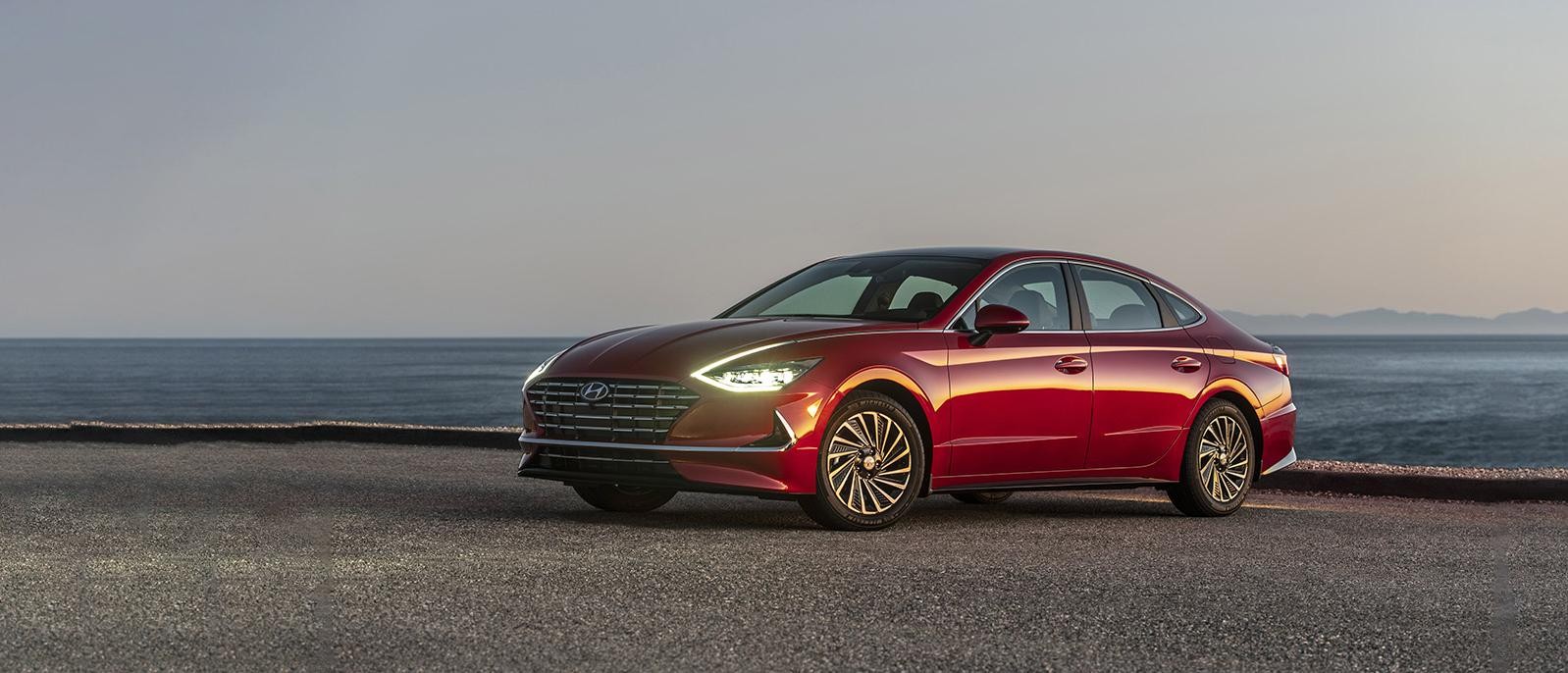
The cabin design emphasizes horizontal lines and an open feeling that prevents claustrophobia during long drives. Thoughtful touches include multiple USB ports, wireless charging, and configurable ambient lighting that reduces eye strain during early morning or evening commutes.
Technology features focus on reducing driver workload and enhancing safety. The highway driving assist function effectively combines adaptive cruise control with lane centering to reduce the mental fatigue associated with long-distance driving.
The blind-spot view monitor displays a camera feed of adjacent lanes in the instrument cluster when signaling, providing additional confidence during lane changes a frequent maneuver for highway commuters.
Practicality hasn’t been overlooked despite the stylish exterior. The trunk offers generous capacity without the hybrid battery significantly impinging on cargo space. The rear seat room accommodates adult passengers comfortably, making the vehicle versatile for carpooling arrangements that might help offset commuting costs.
For commuters seeking efficiency with a warranty safety net and more visual distinctiveness than traditional commuter options, the Sonata Hybrid presents a compelling value proposition with the features most relevant to high-mileage drivers.
Also Read: 10 Cars That Last Through Years of Rideshare Driving
5. Mazda6
The Mazda6 stands apart from typical commuter choices by offering a premium driving experience and exceptional handling characteristics without the luxury price tag. While not available as a hybrid, its efficient Skyactiv-G engine technology delivers respectable fuel economy of up to 35 mpg on highways a worthy trade-off for commuters who refuse to sacrifice driving enjoyment despite their long distances.
What makes the Mazda6 particularly suitable for extreme commuters is its driver-focused ergonomics and engagement that can reduce fatigue by keeping the driver more naturally connected to the driving experience.
Interior quality represents the Mazda6’s standout feature for high-mileage drivers. Materials and assembly quality rival entry-level luxury brands, with soft-touch surfaces, available Nappa leather, and genuine wood trim creating an environment that feels special rather than merely functional.
The front seats deserve particular praise, offering exceptional support through carefully sculpted bolstering and multiple adjustment points that accommodate a wide range of body types. This premium approach to the cabin experience pays dividends during extended commutes by creating a space that remains pleasant hour after hour.
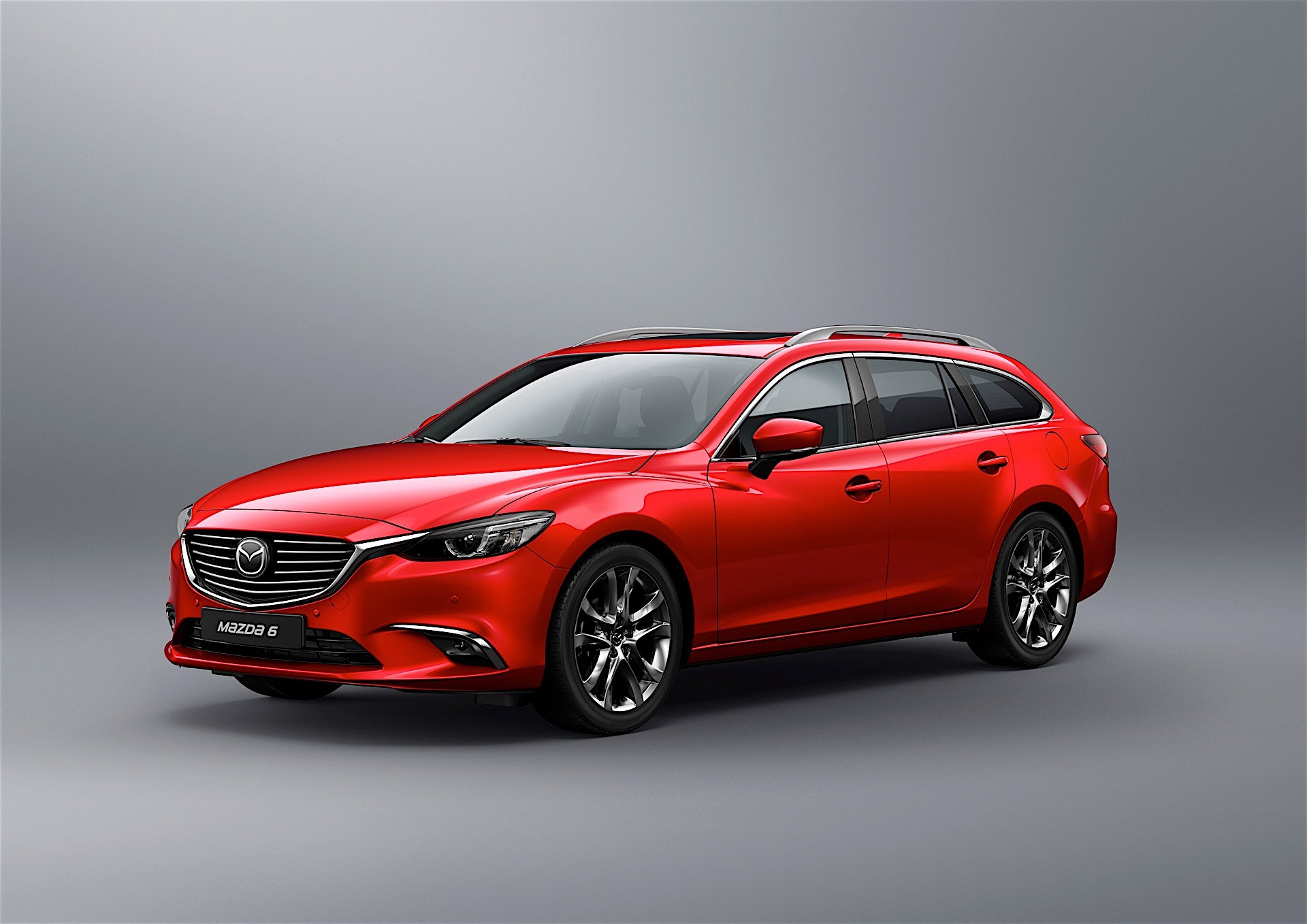
Reliability ratings for the Mazda6 consistently place it above average, with the naturally-aspirated engine option demonstrating particular longevity.
Maintenance costs typically fall below luxury brands while service intervals align with industry standards. The conventional powertrain may represent an advantage for some extreme commuters, as it avoids potential long-term hybrid battery replacement costs and relies on well-proven technology with a clear maintenance history.
Road manners distinguish the Mazda6 from most commuter-focused competitors. The suspension provides a sophisticated balance between comfort and control, absorbing harsh impacts while maintaining composure through curves.
The steering offers genuine feedback that keeps the driver engaged without requiring undue effort. These driving dynamics transform the commuting experience from mundane transportation to an engaging drive that can be enjoyable rather than merely tolerable.
Safety technology includes expected features like adaptive cruise control and lane-keeping assistance, but Mazda’s implementation tends to feel less intrusive than some competitors. The available head-up display helps keep the driver’s attention on the road during long highway stretches.
For commuters who view their extended drives as an opportunity to enjoy a well-crafted machine rather than mere transportation, the Mazda6 offers a compelling blend of efficiency, reliability, and driving satisfaction that can make marathon commutes more tolerable.
6. Tesla Model 3 Long Range
The Tesla Model 3 Long Range represents a paradigm shift for extreme commuters, offering an electric alternative with sufficient range to handle 100+ mile daily commutes while delivering potentially significant operating cost advantages. With an EPA-rated range exceeding 350 miles per charge, the Model 3 Long Range eliminates the “range anxiety” that might otherwise make electric vehicles impractical for high-mileage drivers. For commuters with home charging capabilities, the daily routine of plugging in overnight replaces frequent gas station stops, reclaiming valuable time.
The economic advantage for extreme commuters becomes particularly apparent when analyzing operational costs. While the initial purchase price exceeds many conventional alternatives, the cost-per-mile calculation shifts dramatically in Tesla’s favor for high-mileage users. Electricity costs per mile typically range from one-third to one-quarter of gasoline expenses, creating substantial monthly savings that accelerate as miles accumulate. Maintenance requirements are significantly reduced, with no oil changes, transmission service, or exhaust system repairs to consider.
The driving experience itself addresses many common commuter pain points. The instant torque delivery provides effortless acceleration for highway merging and passing without the noise and vibration of internal combustion engines.
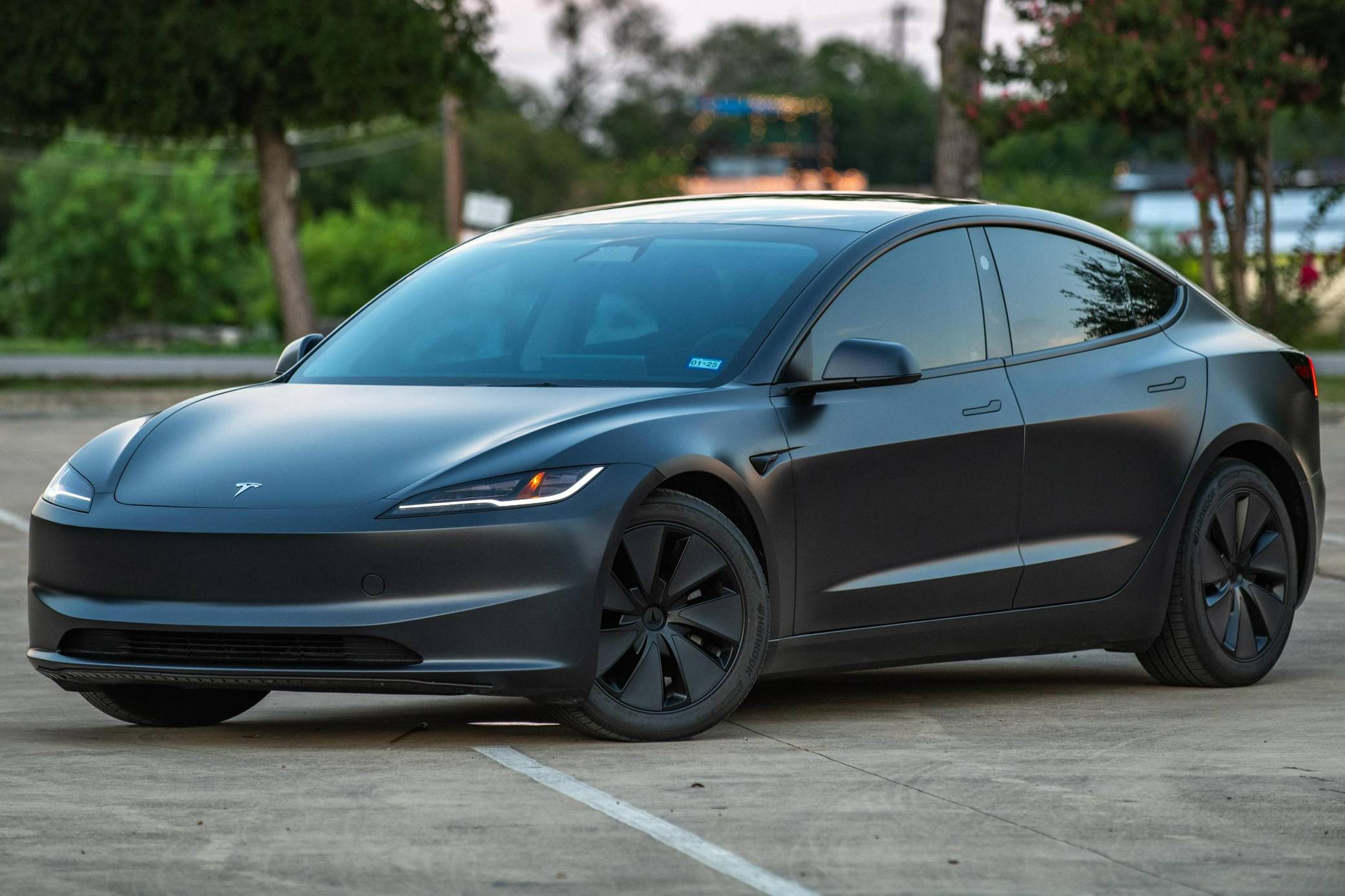
The regenerative braking system allows for primarily one-pedal driving in most situations, reducing physical fatigue during stop-and-go traffic conditions. The cabin remains exceptionally quiet at highway speeds, creating a serene environment that minimizes commuting stress.
Tesla’s Autopilot system, while requiring constant driver attention and supervision, can reduce the mental workload associated with long highway stretches by handling steering, acceleration, and braking under optimal conditions.
The large central touchscreen provides entertainment options during charging stops, while over-the-air updates continue to improve functionality throughout ownership a stark contrast to conventional vehicles that remain static after purchase.
The minimalist interior design emphasizes spaciousness and visibility, with excellent forward sightlines and an uncluttered dashboard that reduces visual distractions.
Seating comfort is generally good for extended periods, though some drivers may find the lack of traditional adjustment options limiting. For environmentally conscious commuters or those simply seeking to minimize long-term operating costs while enjoying cutting-edge technology, the Model 3 Long Range presents a compelling option that becomes increasingly economical as daily mileage increases.
7. Subaru Outback
The Subaru Outback offers extreme commuters a unique blend of all-weather capability, wagon practicality, and car-like efficiency that makes it particularly well-suited for those facing variable commuting conditions.
With up to 33 mpg highway from its efficient base engine and standard all-wheel drive, the Outback provides confidence during adverse weather without the fuel economy penalty typically associated with SUVs. This combination proves especially valuable for rural or suburban commuters who face a mix of highway driving and occasionally challenging road conditions.
What distinguishes the Outback for high-mileage drivers is its exceptional versatility paired with commuter-friendly attributes. The raised ground clearance (8.7 inches) navigates poor road surfaces and light off-pavement conditions that might challenge conventional sedans, while the car-based platform delivers handling dynamics superior to truck-based SUVs.
The symmetrical all-wheel-drive system operates transparently in normal conditions while providing immediate traction when needed reducing stress during inclement weather commutes.
Interior comfort features prominently in the Outback’s suitability for long-distance driving. The seats receive consistent praise for all-day comfort, with supportive cushioning and a driving position that accommodates a wide range of body types.
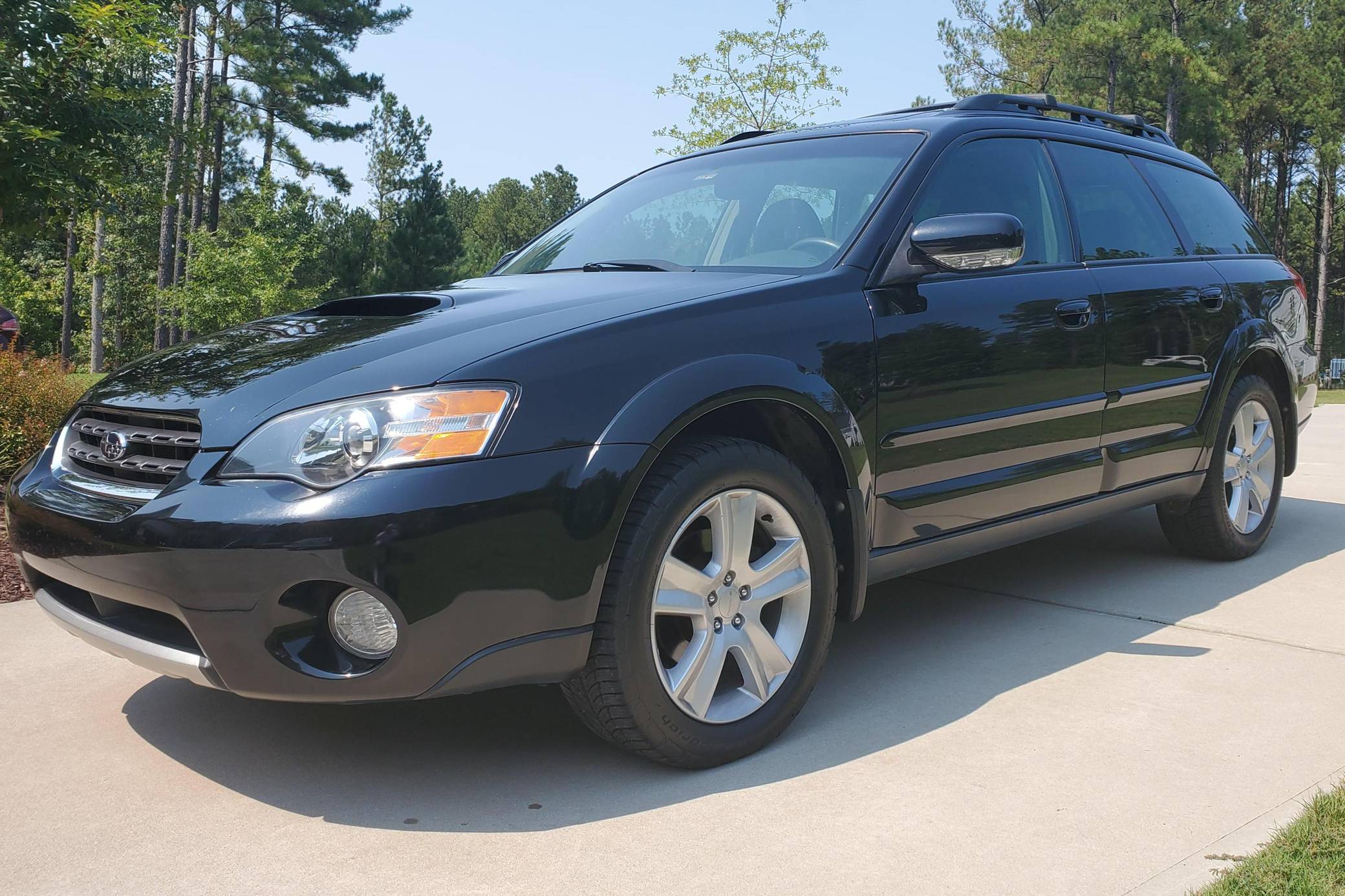
Visibility exceeds most crossover competitors thanks to a thoughtful greenhouse design with minimal blind spots. Cabin noise levels remain well-controlled at highway speeds, though not quite matching luxury-brand standards.
The available 11.6-inch vertical touchscreen centralizes controls while maintaining physical buttons for critical functions a balance that reduces distraction during long drives.
Reliability ratings for the Outback typically exceed industry averages, with Subaru’s boxer engine design demonstrating excellent longevity when properly maintained.
The continuously variable transmission (CVT) has shown improved durability in recent generations, addressing concerns from earlier models. Maintenance costs remain reasonable, though slightly higher than some front-wheel-drive competitors due to additional drivetrain components.
Practicality extends beyond the commuting experience, with the wagon configuration providing 32.5 cubic feet of cargo space behind the rear seats substantially more than sedan alternatives. Standard roof rails accept various carrier systems for outdoor equipment, making the Outback equally capable during weekend adventures.
For commuters who refuse to let their job’s location dictate their lifestyle or living situation, the Outback provides a compelling balance of daily driving efficiency and weekend versatility that can accommodate both work requirements and personal interests.
8. Lexus ES Hybrid
The Lexus ES Hybrid offers extreme commuters a raised approach to high-mileage driving, delivering luxury accommodations and exceptional refinement while maintaining impressive efficiency of up to 44 mpg combined.
For those spending a significant portion of their day in transit, the ES Hybrid transforms the commuting experience from mere transportation to genuine comfort.
The hybrid powertrain operates with a seamlessness that conventional vehicles cannot match, with electric assistance providing torque-filled acceleration when needed while enabling near-silent operation in many driving scenarios.
What distinguishes the ES Hybrid for high-mileage drivers is its uncompromising approach to comfort. The seats feature multi-density foam padding and available semi-aniline leather that maintains its supportive properties even after hours of continuous use.
The driving position accommodates a wide range of body types with 14-way power adjustments including extending thigh support a critical feature for reducing lower body fatigue during extended drives.
Cabin noise levels set benchmarks in the segment, with acoustic glass, active noise cancellation, and extensive sound insulation creating an environment where conversation requires no raised voices even at highway speeds.
Reliability represents another ES Hybrid advantage for extreme commuters. Lexus consistently ranks at or near the top of dependability studies, while the hybrid system builds on parent company Toyota’s decades of hybrid experience.
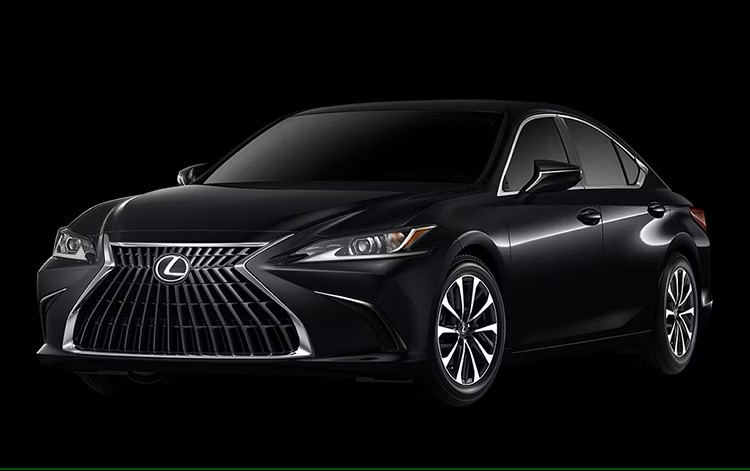
The powertrain components are conservatively engineered and tuned for longevity rather than maximum performance, a philosophy that aligns perfectly with high-mileage driving needs. Maintenance requirements remain minimal, with extended service intervals and reduced wear on friction components like brakes thanks to the regenerative braking system.
Technology implementation focuses on reducing driver workload without introducing distractions. The standard Lexus Safety System+ 2.5 includes adaptive cruise control with lane tracing assist that reduces highway driving fatigue while maintaining appropriate driver engagement.
The available head-up display presents critical information within the driver’s natural sightline, minimizing eye movement away from the road. The Mark Levinson audio system transforms unavoidable commuting time into an opportunity for high-fidelity music enjoyment.
The ES Hybrid’s premium approach does come with a higher initial purchase price than mainstream alternatives, but for extreme commuters, the calculation extends beyond the purchase price to include the value of comfort, refinement, and predicted reliability over hundreds of thousands of miles.
For those who view their commuter vehicle as both a practical necessity and a daily sanctuary, the ES Hybrid presents a compelling option that makes long-distance driving considerably more pleasurable while maintaining reasonable operating costs.
9. Honda CR-V Hybrid
The Honda CR-V Hybrid offers extreme commuters a compelling balance of efficiency, practicality, and comfort in a compact SUV package that addresses multiple commuting priorities.
Achieving up to 40 mpg combined while providing the raised seating position and versatility of an SUV, the CR-V Hybrid satisfies drivers who desire crossover attributes without the traditional fuel economy penalty.
Honda’s two-motor hybrid system delivers smooth operation with minimal powertrain noise, creating a refined driving experience particularly valued during extended time behind the wheel.
What distinguishes the CR-V Hybrid for high-mileage drivers is its exceptional space efficiency relative to its exterior dimensions. The thoughtfully designed interior maximizes useful space, with rear legroom that exceeds some midsize sedans and cargo capacity that accommodates everything from work equipment to family gear.
This versatility proves especially valuable for commuters who need their vehicle to serve multiple roles beyond basic transportation. The driving position offers excellent visibility in all directions, reducing the stress associated with heavy traffic navigation and lane changes.
Seat comfort receives particular attention in the CR-V Hybrid, with supportive cushioning and multiple adjustment points that prevent the pressure points and discomfort that can develop during long drives.
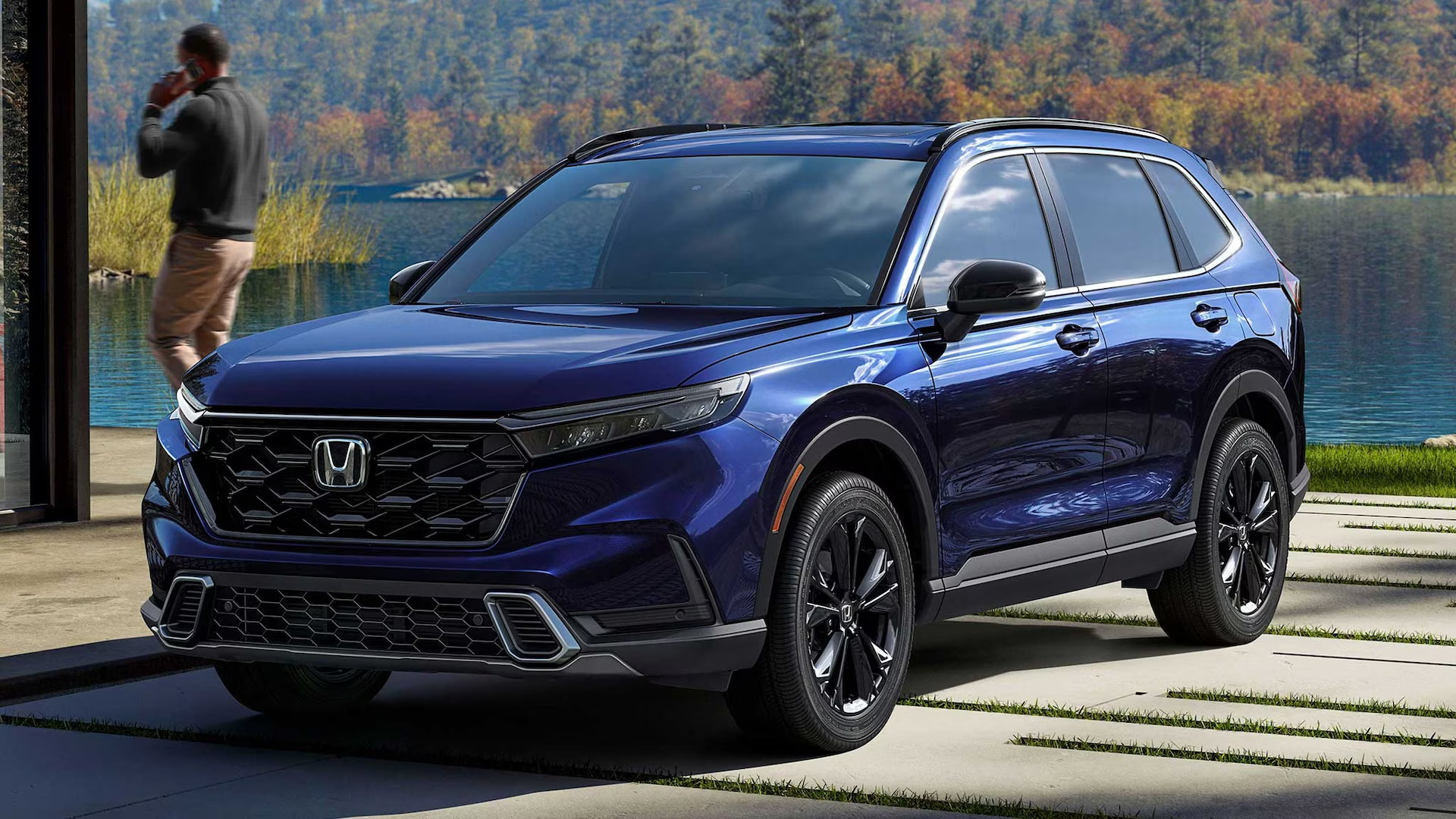
The cabin remains impressively quiet at highway speeds thanks to active noise cancellation and additional sound insulation compared to the conventional CR-V.
Ride quality strikes an excellent balance between compliance and control, absorbing road imperfections without the floaty character that can induce fatigue during extended highway stretches.
Honda’s reputation for reliability extends to the CR-V Hybrid, with the powertrain demonstrating excellent durability in real-world conditions. Maintenance requirements align with other Honda hybrids, with extended service intervals for many routine items and reduced wear on braking components due to regenerative braking.
The hybrid battery warranty typically extends to 8 years/100,000 miles, providing important coverage for high-mileage accumulation during the initial ownership period.
Technology implementation focuses on practical driver assistance rather than novelty features. The adaptive cruise control system functions smoothly in various traffic conditions, while the lane-keeping assist reduces the mental workload during highway driving without feeling intrusive.
The infotainment system prioritizes ease of use over flashy graphics, with physical controls for critical functions that can be operated without diverting attention from the road. For commuters seeking SUV versatility without sacrificing efficiency or reliability, the CR-V Hybrid represents a pragmatic choice that accommodates both work requirements and life beyond the commute.
10. Volkswagen Golf TDI
The Volkswagen Golf TDI, while only available on the pre-owned market in the United States since 2015, deserves consideration from extreme commuters seeking exceptional highway efficiency and European driving dynamics.
These diesel-powered compacts deliver remarkable real-world highway fuel economy often exceeding 45 mpg, with many owners reporting 700+ miles per tank a significant advantage for those spending hours on interstates daily. Post-emissions modification examples (2009-2015) offer particularly compelling value, with depreciation largely stabilized while mechanical reliability remains strong.
What distinguishes the Golf TDI for high-mileage drivers is its unique combination of efficiency and engaging driving experience. The diesel engine delivers substantial torque at low RPMs, providing effortless highway cruising and minimal downshifting on grades.
The chassis offers sophisticated road manners rare in economy-focused vehicles, with composed handling and a solid, planted feel that reduces driver fatigue during extended sessions. The compact exterior dimensions facilitate urban maneuverability while the hatchback configuration maximizes practical cargo capacity relative to the vehicle’s footprint.
Interior quality represents another Golf TDI advantage for those spending significant time in their vehicle. Materials and assembly typically exceed class expectations, with soft-touch surfaces and tight panel gaps creating a more premium environment than most efficiency-focused alternatives.
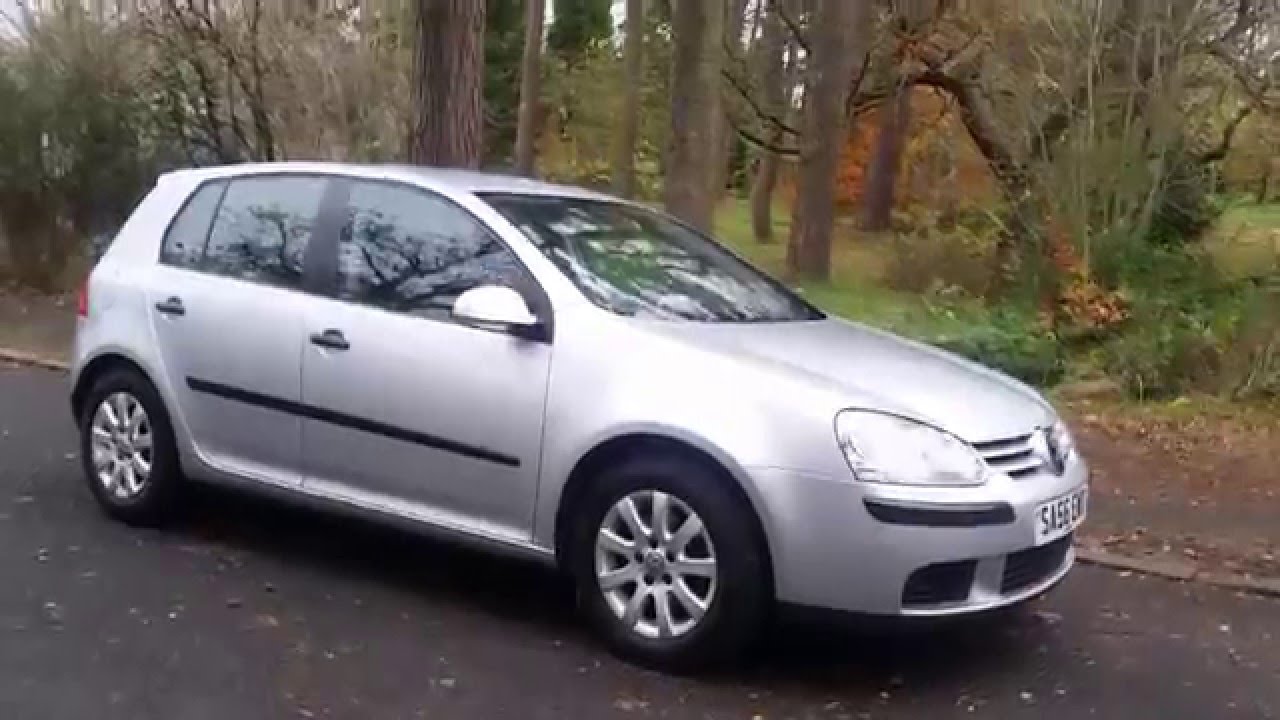
The seats provide excellent support through thoughtfully shaped cushions and bolsters, accommodating extended driving sessions without inducing discomfort. The driving position suits a wide range of physiques, with ample adjustment range and an ergonomically sound control layout.
Maintenance considerations differ somewhat from conventional commuter choices. While diesel engines typically require less frequent service than gasoline counterparts, maintenance costs may run slightly higher when service is needed.
The trade-off comes in exceptional longevity, with properly maintained TDI engines routinely exceeding 300,000 miles making them ideal candidates for extreme commuters. Buyers should verify that any emissions modifications have been properly completed and documented to ensure ongoing compliance and optimal performance.
Technology features vary by model year and trim level, with later examples offering adaptive cruise control and other driver assistance features particularly valuable for high-mileage users.
Even earlier models provide fundamentally sound ergonomics and driver-focused control placement that enhance the commuting experience. For commuters willing to consider the pre-owned market and who prioritize driving engagement alongside efficiency, the Golf TDI represents a unique option that can make necessary long-distance commuting substantially more enjoyable while keeping operating costs remarkably low.

